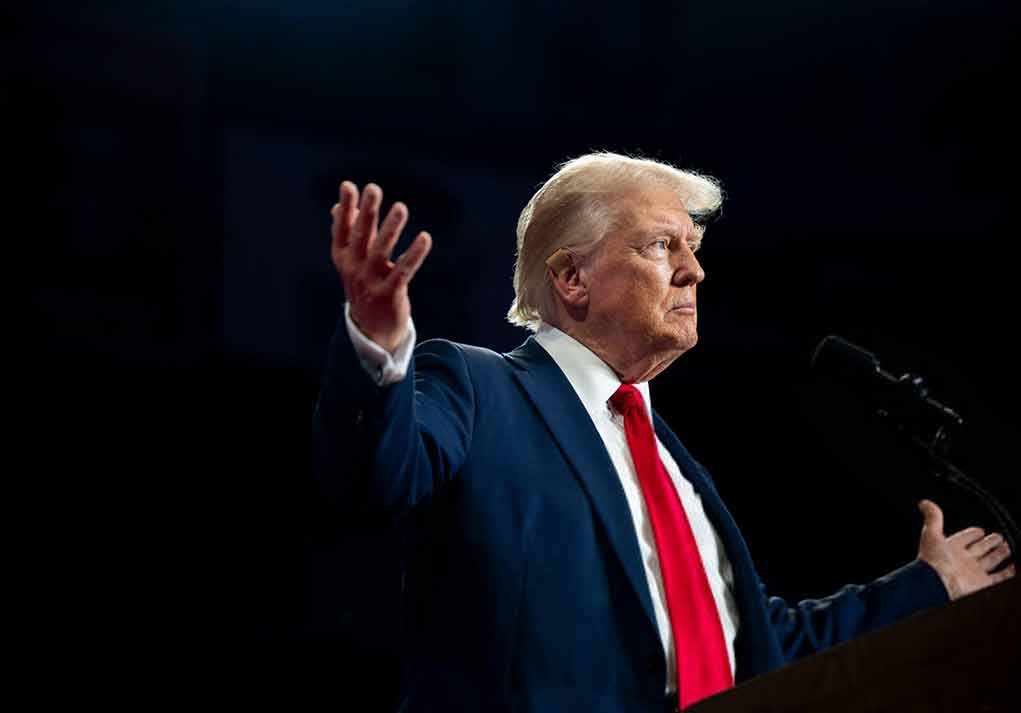
Donald Trump’s declaration of a ‘non-international armed conflict’ with Caribbean drug cartels could transform US counter-narcotics strategy.
Story Snapshot
- Trump labels Caribbean drug cartels as “unlawful combatants.”
- Potential shift in US policy to treat cartels under the laws of war.
- Significant legal, diplomatic, and operational consequences expected.
- Raises questions about international humanitarian law application.
New Policy Paradigm: From Crime to Conflict
Donald Trump’s declaration marks a pivotal shift, proposing a new legal and policy approach to combat Caribbean drug cartels. By classifying these entities as “unlawful combatants,” Trump suggests treating them as participants in an armed conflict rather than as mere criminals. This reclassification could enable the US to employ military force against these groups, invoking war powers instead of relying solely on criminal statutes.
This approach aligns with a growing call among some political leaders for tougher measures against cartels. They argue that the cartels’ sophisticated operations and violent tactics pose a significant national security threat, justifying extraordinary responses typically reserved for war-like situations. However, this move raises substantial questions about its legality under international humanitarian law.
Legal and Diplomatic Repercussions
The Geneva Conventions distinguish between international and non-international armed conflicts. Trump’s declaration introduces the concept of a non-international armed conflict (NIAC) with cartels, treating them similarly to how the US addresses terrorist organizations. This has never been done with drug cartels before. The implications are profound, potentially involving military engagement and detention without trial, reminiscent of post-9/11 counter-terrorism strategies.
This shift may face significant legal challenges both domestically and internationally. Legal experts voice concerns over blurring the lines between criminal justice and armed conflict, warning of potential violations of international law. Moreover, Caribbean nations express apprehension over sovereignty issues and the risk of collateral damage.
"Trump declares US is now in a ‘non-international armed conflict’ and labels Caribbean drug cartels unlawful combatants" – The Independent #SmartNews https://t.co/mVYhy4ueqL
— George Leroy Tirebiter (@MarkKepes) October 2, 2025
Impact on US-Caribbean Relations
The Caribbean region serves as a crucial transit point for cocaine and other drugs entering the US. Historically, US counter-narcotics efforts have involved cooperation with Caribbean nations. However, treating the issue as a military conflict could complicate these relationships. Caribbean governments, while reliant on US aid, are wary of increased US military involvement within their borders.
Regional leaders have expressed mixed reactions, with some urging respect for their sovereignty and adherence to international law. US diplomats are actively engaging with these governments to manage diplomatic fallout and maintain cooperative security efforts.
Potential Consequences and Future Considerations
This policy shift sets a precedent for addressing transnational criminal organizations as parties in armed conflict rather than criminal enterprises. Short-term consequences include heightened tensions between the US and Caribbean nations and potential military actions. Long-term, this could erode the legal distinctions between crime and war, challenging established frameworks for international law and diplomacy.
The militarization of drug policy raises concerns about human rights, regional stability, and the rule of law. Critics warn of mission creep, civilian harm, and unintended consequences of involving military forces in what has traditionally been a law enforcement domain. As the US navigates this complex landscape, careful consideration of legal, ethical, and practical implications will be crucial.
Sources:
Harvard Law Review, “Criminal Organizations and the Laws of War” (2023)
RAND Corporation, “Countering Transnational Organized Crime: Challenges and Opportunities” (2024)
Human Rights Watch, “US Counter-Narcotics Policy and Human Rights” (2025)

